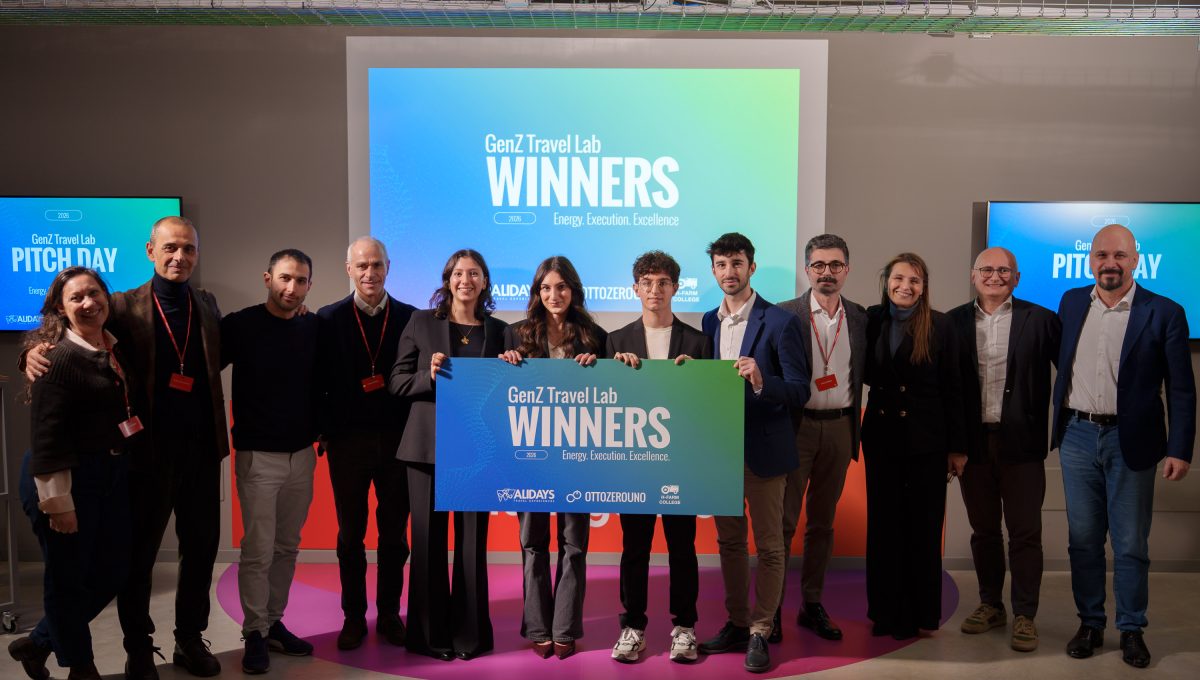What is Cloud Computing: meaning, examples and applications

Think about it for a second: how many times a day do you open a file on Google Drive, watch a show on Netflix, or listen to music on Spotify? All of this happens thanks to Cloud Computing, even if we rarely notice it. It’s the technology that has transformed how we store, share, and experience data, making it accessible anywhere, anytime, from any connected device.
The meaning of Cloud Computing literally translates to “computing in the cloud.” But there’s nothing mystical about it. It’s a vast network of servers working behind the scenes to provide storage, processing power, and applications, without you needing to physically own the hardware that runs them. In simple terms, the cloud is where technology meets simplicity, putting everything you need just a click away.
And that’s only the beginning. In the next sections, you’ll discover what Cloud Computing really is, how it works, its main advantages, how it’s used in everyday life and the incredible career opportunities it offers to those ready to build their future in the digital world.
Cloud Computing meaning and main advantages
Cloud Computing has completely redefined what we mean by “technology.” With it, there’s no need to install software, buy servers, or worry about maintenance. You simply access what you need, when you need it, paying only for what you use. It’s the logic of efficiency and scalability, the same principle that has allowed millions of startups and businesses to grow faster than ever before.
But the greatest advantage of Cloud Computing isn’t just economic, it’s freedom. Freedom to collaborate from anywhere, to work in global teams, to innovate without physical limits. The cloud enables a new way of working and thinking about business, one that’s more dynamic, agile, and sustainable.
It has also transformed how organizations manage data and make decisions. Thanks to distributed computing power, companies can now analyze huge volumes of information in real time, predict trends, optimize operations, and enhance the customer experience, all without heavy upfront investments.
That’s why the cloud is often described as the engine of digital transformation. From e-commerce platforms to artificial intelligence, from cybersecurity systems to smart cities, every major innovation today runs through the cloud.
This evolution has also created new professional roles, such as the Cloud Architect, who designs and organizes cloud infrastructures, or the Cloud Engineer, who implements and manages them. There are also Data Engineer and Data Scientists, who use cloud power to collect, analyze, and interpret vast amounts of data for business strategy.
Different as they are, these roles share one truth: the cloud isn’t just a technology, it’s a living ecosystem, constantly evolving and creating new opportunities for those ready to build a career in the digital future.
What is Cloud Computing and how it is used
Still wondering what exactly Cloud Computing means in practice? Imagine saving every document, photo, or video not on your computer but in a virtual space that’s always available. That’s Cloud Computing.
But it goes much further than storage. It’s the foundation of modern applications, from social media platforms to online banking, from streaming services to gaming networks. Businesses rely on it to store vast amounts of data, run predictive analytics, or develop software collaboratively across continents.
This approach reduces time, cuts costs, and increases security. Cloud solutions can be public, shared by multiple users; private, dedicated to a single company; or hybrid, combining both for the perfect balance between flexibility and control. This adaptability is what makes the cloud essential across every industry.
Practical examples of Cloud Computing in daily life and business
If you think Cloud Computing is just a technical concept, think again. It’s part of your life far more than you realize. When you stream a movie on Netflix, you’re using the cloud. When you share a folder on Google Drive, you’re using the cloud. When a company manages its sales, logistics, or customer support with online tools, the cloud is working behind the scenes.
In the business world, Cloud Computing has become a synonym for speed and flexibility. Startups can develop digital products without investing in expensive infrastructure, while large companies can innovate continuously, improving efficiency and customer experience in real time.
The truth is, the cloud has democratized technology, making it accessible, scalable, and adaptable to projects of any size, from the smallest idea to the most ambitious enterprise. And this revolution doesn’t just impact companies, it shapes the next generation of professionals.
If you’re curious about how these technologies are changing the way we work and want to explore how to build your own career in this ever-evolving world, get in touch with the H-FARM College team and start shaping your path in the world of digital innovation.
Becoming a Cloud Specialist: skills and career opportunities
By now, one thing is clear, the cloud is everywhere. It powers the apps we use daily, the services that make life easier, and the infrastructures that drive global business. That’s why the Cloud Specialist has become one of the most in-demand roles in the digital job market. This professional designs, manages, and optimizes cloud infrastructures, ensuring that systems are efficient, secure, and always connected.
To start this career, you’ll need solid technical skills in networks, cybersecurity, and IT architecture, along with knowledge of leading platforms like AWS, Google Cloud, and Microsoft Azure. But technical ability isn’t enough. What sets successful professionals apart is a strategic, forward-thinking mindset that connects technology to business value.
A great Cloud Specialist doesn’t just configure servers, they understand how the cloud can drive innovation, reduce costs, and empower organizations to grow.
That’s where the concept of the digital mindset comes in: a blend of curiosity, adaptability, and strategic thinking that helps professionals thrive in fast-changing environments. Learn more about this essential skill in our article on how to develop a digital mindset for success and discover why it’s one of the most important soft skills for anyone working in tech.
Choosing this path means entering a career full of international opportunities and rapid growth. It’s a profession that blends vision with action, where innovation and adaptability open the door to endless possibilities. The future of digital innovation is being built in the cloud, and it could be the place where your journey begins.
If you’re ready to turn your passion for technology into a career that truly matters, contact H-FARM College and discover how our programs can help you become one of tomorrow’s cloud leaders.
Cloud Computing course with H-FARM College
To become a real Cloud Specialist, you need more than just curiosity, you need a strong foundation that connects technical expertise with strategic and entrepreneurial thinking. That’s exactly what H-FARM College offers: a place where theory meets practice, and where cloud technology isn’t just studied, but experienced every day.
In a world where everything is connected, studying Cloud Computing means stepping into the core of innovation. The Bachelor’s Degree in Software & Cloud Architecture at H-FARM College prepares students to understand and manage cloud technologies through a hands-on, future-focused approach.
At the H-FARM campus, immersed in an ecosystem of technology, creativity, and entrepreneurship, you’ll not only learn technical fundamentals but also apply them to real projects, collaborating with companies and developing cross-functional skills. You’ll gain the international and digital mindset that today’s job market demands.
Studying Cloud Computing means joining a global revolution that’s reshaping the way we live, work, and create. And if you feel this world is yours too, H-FARM College is the ideal place to start building your career in the cloud and turn your ideas into impact.
FAQ


Cloud computing reduces costs, ensures scalability and allows access to data and applications from any connected device.


Public cloud is shared by multiple users, private cloud is dedicated to a single company, while hybrid combines both for flexibility and security.


Everyone: from streaming services like Netflix to storage platforms like Google Drive and iCloud.


You need technical skills in networks, cybersecurity and IT architectures, along with knowledge of platforms such as AWS, Azure and Google Cloud.


Yes, cloud platforms adopt advanced security protocols, but proper access management and company policies remain essential.












 Back
Back
